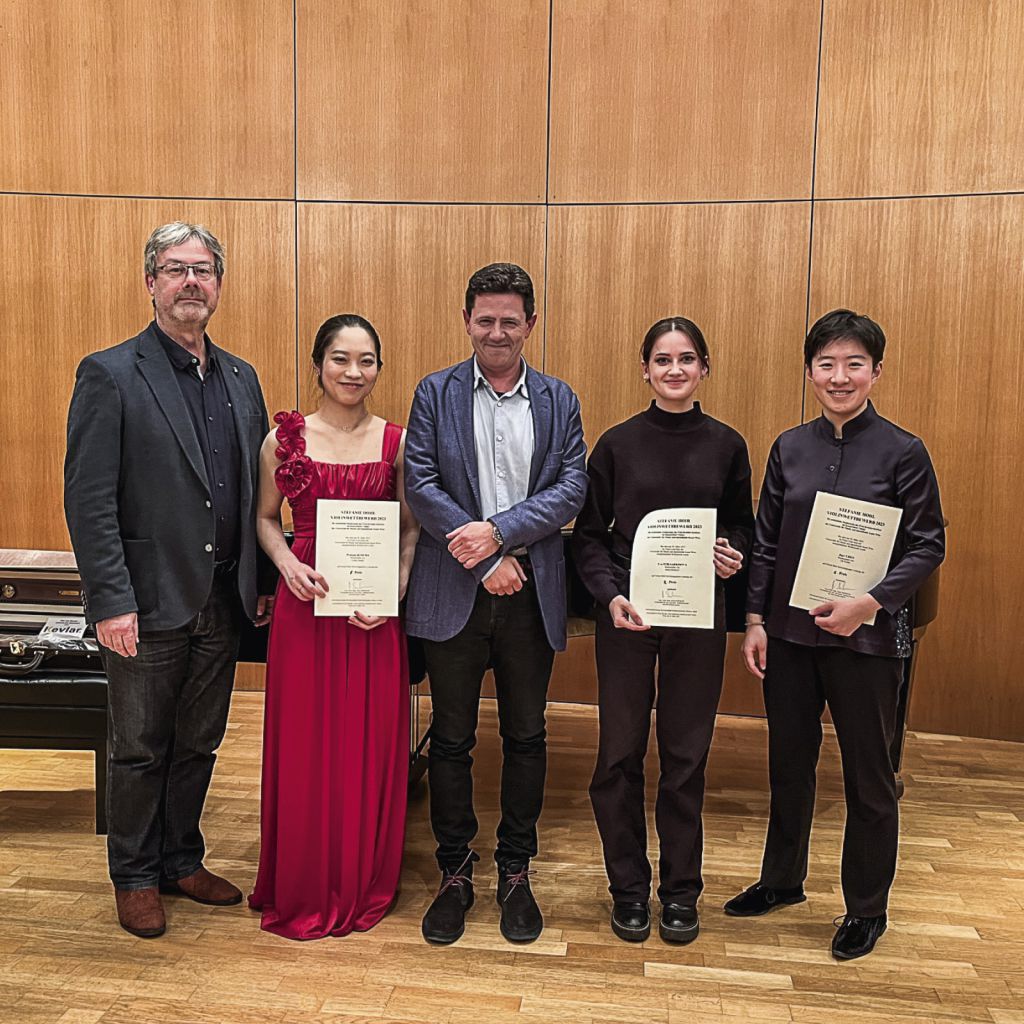At the mdw, a special priority has always been to offer students the best possible support and accompaniment on their personal pre-career paths. With this in mind, the Leonard Bernstein Department of Wind and Percussion Instruments (LBI) and the Fritz Kreisler Department of String Instruments, Harp and Guitar developed competitions that are especially attractive to their participants—not least thanks to the variety of prizes to be won. These competitions are focused on students’ futures, taking a long view in supporting their individual artistic development in a targeted manner.

The Leonard Bernstein Department Competition and the Selection Audition of the Fritz Kreisler Department are held each year between January and April. The LBI’s competition features three judging categories oriented toward students’ various levels of training. Their respective first rounds take place within competitors’ own instrumental groups. Beginning with the second rounds, the three best-placed in each instrumental group—or a greater number in the case of very popular majors such as flute, clarinet, trumpet, and percussion—appear before a mixed jury. The LBI makes sure not only that players of all instruments are represented on the jury but also that judging is done in an independent manner. Every year, artists from outside the University and faculty from other departments and institutions declare themselves willing to evaluate the young artists in accordance with a points-based scoring system. In addition to scholarship nominations, the competition’s winners can look forward to exciting concert projects including invitations to perform in Grafenegg or as a soloist with orchestra. What’s more, all finalists in the competition receive prizes from competition sponsors.
Much like the LBI’s competition, the Fritz Kreisler Department’s Selection Audition allows players of all its instruments to enter. Participants can prove their skills in two rounds before a broad-based jury. The main purpose of the Selection Audition is to facilitate the appropriate distribution of scholarships and also loan instruments, since the demand for high-quality department-owned string instruments is quite great. And this year, the Selection Audition’s 1st prize included the additional opportunity to play as a soloist with orchestra at the music festival in Zell am See, while the best preparatory programme student received an invitation to a master class in Poland. For violin students, each year also features the Stefanie Hohl Competition. Those who prevail with their renditions of the obligatory repertoire, which ranges from Bach to Paganini and Mozart and includes a complete violin concerto in the second round, receive a high-quality violin case from Musafia’s Master Series in addition to a cash prize.
Victory at a big or renowned competition can launch a musical career overnight—but can the same also be said of the mdw’s internal competitions? What opportunities can winners look forward to, and how attractive is participation to students? Those who participate get a unique chance to measure themselves not just against their classmates but also against mdw students more broadly and to show what they can do in the context of multiple competition rounds. And for that matter, these competitions are themselves exciting performance opportunities while simultaneously embodying good preparation for future competitions and concerts—for as the time-honoured German expression goes, it’s practice that makes the master. Feedback from the jury’s diverse membership helps participants work on and improve their playing. What’s more, a greater number of opportunities for well-publicised concert appearances can support winners on their way forward. Music competitions also, however, offer other advantages wholly apart from material gain and performing opportunities for participants. In an article published by the German Music Council, Hochschule für Musik und Tanz Köln musicology professor Arnold Jacobshagen highlights the opportunity to “compare levels of performance in order to figure out where one’s currently situated.” Motivation to pursue future achievements, the broadening of one’s instrumental and musical horizons, and self-confidence boosts are likewise crucial effects that a music competition can have. For teachers, preparing for competitions is likewise an important process in the context of what they do. It offers them the opportunity to expand their pedagogical skills, drive forward their professional development, network, get inspired, and strengthen their reputation. And by themselves participating in competitions, teachers can positively influence their own careers and others’ musical training.
In conclusion, one can most certainly say that competitions are of great advantage to students and can be viewed as a step towards a musical career. And for their part, the intra-departmental competitions at the mdw are consistently viewed by surveyed participants in a positive light. Jonathan Helm, for example, who prevailed in the 2023 LBI Competition’s Category C, is glad to have been able to compete in such a “protected atmosphere” as the mdw. For him, it represented a “good opportunity to play for a diverse jury […] and get heard by teachers of other instruments.”

